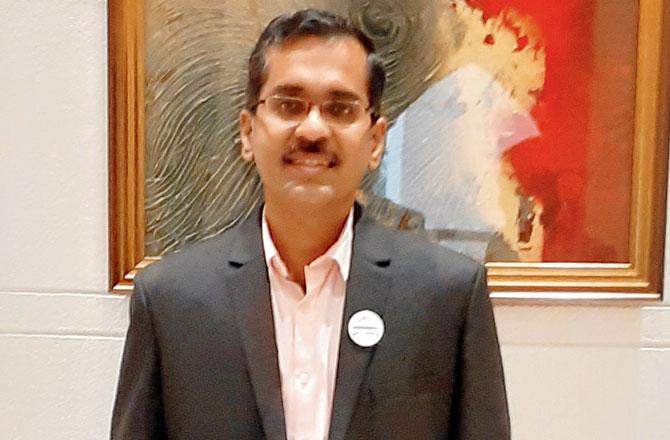Pune scientists see hope in nanotech to deliver anti-cancer drug to tumour, without harming rest of the body

A junior scientist seen in the laboratory of MIMER Medical college, where the technology is being researched
A team of cancer scientists in Pune are researching a unique nanorobot technology that can specifically target a tumour without damaging healthy cells of other organs. Unlike chemotherapy, which affects the healthy organs and cells of cancer patients, the nanorobot will be able to deliver the anti-cancer drug right inside the tumour and prevent any damage to the rest of the body.
ADVERTISEMENT
The research has been funded by the Department of Bio Technology (DBT), Government of India, and is being spearheaded by Dr Shashwat Banerjee, 43, who heads the Central Research Laboratory at Maharashtra Institute of Medical Education and Research (MIMER) in Pune, and Dr Jayant Khandare, professor in school of pharmacy, MIT-WPU, Pune. The team has already applied for patent rights.
The idea to research this technology came about, when Dr Banerjee witnessed first-hand the harrowing experience of two of his relatives in Kolkata, who were battling intestine cancer and brain tumour, respectively. The side-effects of chemotherapy had taken a toll on them, recalled Dr Banerjee, who has 14 years of experience in nanotechnology.

Dr Shashwat Banerjee
In 2017, he submitted a concept note to DBT and the Department of Science & Technology, Government of India. "They immediately accepted the concept, and sanctioned R42 lakh in instalments for the research work," he said.
In conventional therapy, anti-cancer drugs and drug carriers depend on blood flow to target cancer cells. "These drugs and drug carriers cannot enter deep inside the tumour. They are only able to kill cancer cells at the periphery of it. Hence, they cannot completely eradicate a tumour," said Dr Banerjee. This approach, he said, also attracts several side-effects as anti-cancer drugs kill normal, healthy cells too. "Targeting the anti-cancer drug to cancer cells using nanorobots can help overcome the limitation faced in conventional therapy, thus sparing the normal cells from getting damaged," he added.
The primary aim of developing new chemotherapy delivery systems is to reduce the number of doses, and the nanorobot system, said Dr Banerjee, can achieve this too.
Dr Banerjee said that these synthesised nanorobots will use iron oxide nanoparticles, carbon nanotubes (loaded with the anti-cancer drug doxorubicin), and a cancer cell targeting protein. The nanorobots have already been tested on cancer cells and ex vivo (outside body) tumour models.
As part of the next step, the nanorobot platform will be clinically tested on animals, before being tested on cancer patients. Once the pandemic is under control, the team will be approaching cancer hospitals in Mumbai and Kolkata, to carry out these trials. "Request for permissions will be sent to concerned departments soon. FDA approved materials will be used to make the nanorobots," Dr Banerjee said, adding that the entire exercise is a cost effective one.
Expert Speak
Professor Shailesh V Shrikhande, deputy director, Tata Memorial Hospital said that the study is a step forward in India's quest for "improved and precise drug delivery in the management of cancer". "The journey ahead is still a long one, but the authors should be complimented for taking this step," he said.
Catch up on all the latest Mumbai news, crime news, current affairs, and a complete guide from food to things to do and events across Mumbai. Also download the new mid-day Android and iOS apps to get latest updates.
Mid-Day is now on Telegram. Click here to join our channel (@middayinfomedialtd) and stay updated with the latest news
 Subscribe today by clicking the link and stay updated with the latest news!" Click here!
Subscribe today by clicking the link and stay updated with the latest news!" Click here!






